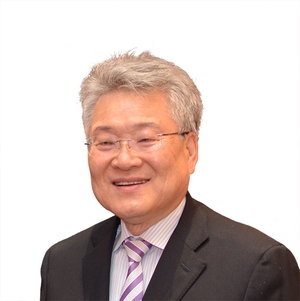Posted on : Feb.27,2019 14:31 KST
 |
|
Spencer Kim
|
 |
|
Spencer Kim
|
Victimology is powerful. It puts the blame on someone else, who is guilty of an evil deed perpetrated on you. It is especially good because it also absolves you of any actions you might have taken that put you into position to become a victim. When two victims become entangled, it becomes a contest as each claims their own suffering is greater, and they are the “real” victim. Therefore, any actions they may take are justified.
On December 20, 2018, the Japanese government announced a Korean naval ship had painted a Japanese maritime patrol aircraft with a fire control radar and portrayed Japan as the victim of an intentionally dangerous, and unfriendly, Korean action. Continued Japanese government high-profile statements kept the issue boiling, confusing the Korean government which thought the incident both small and innocent.
For Japan, the real important date is not December 20, 2018, but March 1, 1919. Prime Minister Abe’s government knows Korea is gearing up for major events to commemorate the centennial of the uprising against colonial rule. Patriots like Yu Gwan-sun, a teenage girl imprisoned, tortured, and murdered for her instigation of peaceful protest, will be remembered. Korean emotions will run high. To the 1919 patriots will be added, again, the still open wound of the Korean sisters and daughters forced into sexual slavery as “comfort women.”
Abe had to get in some of his own preemptive victimology to take some of the steam out of the coming wave of Korean victimology. It is necessary to get some moral equivalency in people’s minds; a dangerous maritime incident only a couple of months ago versus something that happened a hundred years ago.
Abe knows victimology. His political faction points to Japan’s ignominious total defeat in World War Two and finds Japan the victim. It’s only mistake lay in making the bad logistical choice of attacking the US, yet Japan is still not allowed to be a “normal country.” There was no moral guilt. Like any great country, especially one surrounded by failed or underdeveloped states in need of enlightenment, Japan had the right to expand, to bring civilization, and save Asia from wicked Western influence. The museum at the Yasukuni Shrine explains it all. (This view is easier to understand given that so many in Abe’s faction are descendants of pre-war Japanese leaders.)
Righteous expansion requires an army. And the Japanese army, as it marched forward and stayed abroad for years, found itself with a venereal disease problem. The practical answer was controlled comfort stations; it’s just logical, and justified if you are righteous. If you are later vilified for a practical action in a righteous cause, you become a victim, right? And, as a victim, you become easily fatigued by criticism of your half-hearted apologies.
And so we have the suffering contest. Korea as victim. Japan as victim.
How is it that Korea became a victim? Its leaders in the late 19th Century saw modernization coming, but factionalism weakened any robust response. Korea remained backward and weak. Its leaders not only did not respond to the challenge, they fought among themselves even as foreign powers started hovering and coveting the peninsula. And then, worse, one faction aligned itself with Japan and assisted in colonization for their personal gain. Korean sisters and daughters were dragged off to comfort stations, and Yu Gwan-sun was killed, in the first instance because of the failure of Korean leadership. Japanese evil was just the logical consequence.
Likewise, Japan’s total defeat, and the death, destruction, humiliation and radiation that accompanied it, was due to the failure of Japanese leadership, blinded as it was by racial arrogance and hubris, and devoid as it was of human compassion.
Should the answer now be to turn up the volume on “our” suffering to drown out the other’s shouts of pain at their victimhood?
Or, as the rise of China continues and the debate about the durability of the US role in Asia heats up, should Shinzo Abe, Moon Jae-in, and Kim Jong-un think beyond the narratives of their countries’ victimology, and realize that what happens in the future is their responsibility now? If their peoples become victims, whose fault will it be?
And, should it be the Korean government, as today’s representative of yesterday’s failed leaders, which pays compensation for the comfort women tragedy? And bring a righteous end (and, finally, the heartfelt apology they so deserve) to their suffering?
By Spencer H. Kim, co-founder of the Pacific Century Institute
Spencer Kim is a member of the Council on Foreign Relations. He is CEO of CBOL Corp., a California aerospace company, a co-founder of the Pacific Century Institute, and was appointed by President Bush to represent the US on the APEC Business Advisory Council.
The views presented in this column are the writer’s own, and do not necessarily reflect those of The Hankyoreh.
Please direct questions or comments to [english@hani.co.kr]





